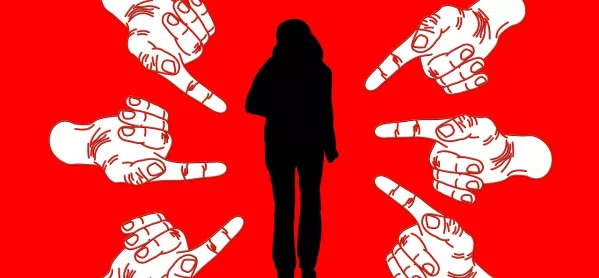- Home
- ‘The day everyone believed I was the worst head in the world’
‘The day everyone believed I was the worst head in the world’

It’s Friday night and I should be relaxing. My phone is next to me and although every instinct tells me not to look, I can’t help it. My partner tells me to stop but every time the adverts come on during Gogglebox I flick on the comments - there were 54 at 5pm - now there are realms of triple figures and it’s rising. Will I wake up to my school in the national papers?
I’m in the throes of a school shaming by local newspapers and subsequently social media. Nothing is positive. Complaints from ex-pupils who were at the school 10 years ago are written as if they happened yesterday and I’m labeled the worst head teacher in the world who doesn’t care about my pupils’ wellbeing.
The comments start to build in momentum. It turns from: schools are too lenient and should expel every pupil who ever does something wrong to demands like, “string them up”, “sort them out” and “lock them up”.
I’m not going to go into detail, but there was an incident at my school. Despite a huge amount of work from my wonderful staff - home visits, planned part time for reintegration, risk assessments, counselling - the press chose to report the most salacious aspects of this incident. I get this. I understand it. I read it.
But it’s wrong. Who’s looking out for the headteachers and schools? Our papers are awash with headlines screaming about school rules (either too strict or too lenient) healthy lunches, banning energy drinks, not letting children go to the toilet, letting too many children go to the toilet. Who’s doing something to prevent this from happening?
The comments underneath every article have a detrimental impact on the school, the community and the people who make those decisions day by day, minute by minute in leadership and in the classroom.
I’m stuck. I can’t share the full details of the case that explain so much more than what’s being printed. Even if I did, it doesn’t sell newspapers, provide clickbait or fit the story that people want to hear: one in which schools are the enemy who allow children to hurt each other and who don’t care about wellbeing.
No one seems to care about the full picture as long as it can provide a Facebook comment, then after a few days it’s forgotten. The impact on the school, however, goes on and on. When you google my school, you won’t see the beauty of our teaching and learning or the hard work and professionalism of my staff, you’ll just see the headlines.
My mind is racing, I’ll sleep tonight because it’s Friday and I’m shattered with the weight of it all, but I’ll wake at 6am and think it through when I should be sleeping. When my own children ask me a question on Saturday afternoon, what are we having for tea tonight? Can my friend come round? Can you help me with my homework? I will give a half answer. I’ll be distracted by the weight of the job and the school shaming. When you care, the job doesn’t stop at 6pm on a Friday.
There is a way forward but we aren’t tackling it yet as a profession. Here’s what I’d like to see:
-
All our professional bodies, heads, roundtables and grassroots organisations coming together to tackle newspapers who are reporting incidents without getting all sides of the story. They should lobby our MPs on our behalf for a change.
-
These bodies should also provide us with public support and ask what they can do to help. It’s lonely and scary when you’re at the centre of a social media storm. We should be given the right to reply beyond bland statements and we should be supported to give more details. If a parent takes it to the press, then why can’t we? We want to protect the child, but surely that goes out the window when it’s the parent who makes it public knowledge.
-
Stop school shaming on Twitter. We should be supporting each other: how do we know that school A has really behaved in that way or school B really did do that? We only get one side of the story. Even so, does it really matter if that’s what the rules are in that school? As professionals, whether you are a teacher, support staff, SLT, consultants, ITT, stop criticising and think about the impact. By all means, discuss whatever you want in terms of policy, but school shaming on #EduTwitter is just as horrific as what is happening tonight on the community Facebook pages.
-
Of course, when schools do get it wrong, they should be held to account, but it must be through the proper channels. Don’t turn it into a witch hunt and think about the nuances and complexities of running a school - it’s hard and full of decision-making that someone, somewhere, might not like. There might be a reason why schools exclude or don’t. Just because it works for one school, doesn’t mean another school is in the same position.
No matter what, I’ll pick myself up, dust myself down and prepare for Monday. I was brought up to be tough, and my staff do not deserve the pasting they’ve had tonight and are likely to get over the weekend. People work hard and it’s my responsibility to look after them. It’s my job.
The writer is a headteacher in England
Keep reading for just £1 per month
You've reached your limit of free articles this month. Subscribe for £1 per month for three months and get:
- Unlimited access to all Tes magazine content
- Exclusive subscriber-only stories
- Award-winning email newsletters



